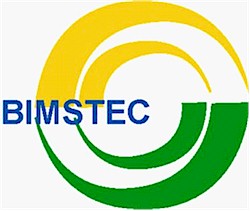Nepal, India to sign two agreements on sidelines of BIMSTEC
Kathmandu, August 25
Nepal and India will sign two agreements on the sidelines of the Bay of Bengal Initiative for Multi-Sectoral Technical and Economic Cooperation (BIMSTEC) summit, which is going to be held in Kathmandu on August 30 and 31.
Bulk cargo movement facility to the nearest rail heads of the major customs points from Kolkata/Haldia and Visakhapatnam ports of India and railway traffic survey agreement of Birgunj-Kathmandu railway will be signed in the presence of Indian Prime Minister Narendra Modi.
The Indian government had announced that it would provide support to expand the railway system from Birgunj to Kathmandu during Prime Minister KP Sharma Oli’s visit to India in the first week of April. It is reported that the pre-feasibility study of the Kathmandu-Birgunj railway will be carried out following the agreement.
Likewise, the Ministry of Industry, Commerce and Supplies (MoICS) has been corresponding with the Indian government for the letters of exchange (LoEs) to be signed. Bulk cargo movement facility to the nearest railheads of the major customs points, namely Biratnagar, Bhairahawa and Nepalgunj, is expected to narrow down the cost of transportation of bulk cargo substantially and unleash the potential of industrialisation in those areas.
Currently, transportation cost of bulk cargo is high as cargo needs to be ferried from Birgunj, where the country’s only rail-based Inland Clearance Depot (ICD) is located, to other parts of the country.
The government of India has provided bulk cargo import facility to Nepal only via Kolkata/Haldia port. However, due to low water draft level in this port, sometimes it takes over a month to dock the ship that has arrived at Haldia port and as a result the delivery of cargo from Haldia port is not reliable.
On the other hand, the Indian government has allowed the use of Visakhapatnam port for Nepal but only for containerised cargo. Nepal has sought bulk cargo movement facility from Visakhapatnam too, which is a deep sea harbour, citing that traders will be encouraged to utilise this port for bulk cargo.
After the pact is signed, the Indian government will allow bulk cargo — cement, fertilisers, hot rolled coil, clinker and coal — movement. To track the trade deviation in Nepal-bound cargo imported from third countries, the government of Nepal and India have implemented the electronic cargo tracking system, through which the movement of Nepal-bound cargo on Indian territory can easily be tracked.
Chandra Kumar Ghimire, secretary at the MoICS, informed that the proposal to sign the LoE for bulk cargo movement with India has been forwarded to the Cabinet following the correspondence with its counterpart ministry in India. The Cabinet will delegate the authority to officials of the concerned ministries to sign the LoE and railway traffic survey agreement.
Bharat Raj Paudyal, spokesperson for the Ministry of Foreign Affairs, also confirmed about the signing of the two crucial agreements with India on the sidelines of the BIMSTEC summit, which will play a catalytic role to take forward the proposed regional agreements towards conclusion.






